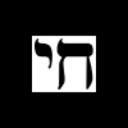Yahoo Answers is shutting down on May 4th, 2021 (Eastern Time) and beginning April 20th, 2021 (Eastern Time) the Yahoo Answers website will be in read-only mode. There will be no changes to other Yahoo properties or services, or your Yahoo account. You can find more information about the Yahoo Answers shutdown and how to download your data on this help page.
Trending News
Jews: can you tell me, please. What is the Jewish Interpretation in English of Isaiah 9:6 in the Tanakh?
Thank you.
6 Answers
- dewcoonsLv 75 years agoFavorite Answer
For unto us a yeled is born, unto us ben is given; and the misrah (dominion) shall be upon his shoulder; and Shmo shall be called Peleh (Wonderful), Yoetz (Counsellor), El Gibbor (Mighty G-d), Avi Ad (Possessor of Eternity), Sar Shalom (Prince of Peace).
- ?Lv 55 years ago
Some say the names are about God, but they are not giving you the complete Jewish view…. let me quote the Jewish Targum on this verse:
“The prophet saith to the house of David, A child has been born to us, a son has been given to us; and He has taken the law upon Himself to keep it, ***and His name*** had been called from of old, Wonderful Counselor, Mighty God, He Who Lives Forever, The Anointed One (or Messiah), in whose days peace shall increase upon us.” (*** emphasis is mine).
Notice that the Jewish Targum writers looked at this verse as being about the Messiah. And this fits in perfectly, that the entire section (in Isaiah 7-11) is Messianic in nature.
Also - The great Rabbi Abraham Ibn Ezra: "There are some interpreters who say that 'wonderful, counselor, mighty God, everlasting Father' are the names of God, and that only 'prince of peace' is the name of the child. But according to my view, the right interpretation is that they are all the names of the child."
And finally - The Jewish Publication Society translation of this verse is as follows:
“For a child is born unto us, A son is given unto us; And the government is upon his shoulder; And his name is called Pele-joez-el-gibbor-Abi-ad-sar-shalom;”
That is a direct quote from a Jewish translation. They obviously chose not to translate the names, but they clearly understood the names to be about the child born.
Source(s): . I am an Author and a Jewish Believer in Jesus (a Messianic Jew) for 27+ years. Grew up in a Conservative Jewish home in NYC. Both parents Jewish. Father was in in Israeli army. I have now taught about the Jewish Jesus, as a guest speaker, in 26 States across the USA. - MattLv 75 years ago
Isaiah 9:5-6 is not a messianic prophecy according to the Jewish perspective. The correct context of this passage is that it describes events that had already taken place in Jewish history, namely, the birth and naming of this particular child (believed to be Hezekiah, the son of King Ahaz), and a prophecy concerning his future mission (which was fulfilled). Hezekiah's role was to lift Judah from the degenerate conditions into which it had sunk, and to lead the indestructible faithful "Remnant of Israel". According to one interpretation, this passage speaks of the wonders performed by God for Hezekiah as King of Judah, and in it, the Prophet expresses his praise of God for sparing Hezekiah and his kingdom from demise at the hands of Sanheriv and his army, who besieged Jerusalem.
Source(s): http://thejewishhome.org/counter/Isa9_56.pdf - Anonymous5 years ago
This is about Hizkiyahu ben Ahaz (generally translated as Hezikiah son of Ahaz) of the Davidic dynasty of Israel.
- How do you think about the answers? You can sign in to vote the answer.
- NeshamaLv 75 years ago
For a child has been born to us, a son given to us, and the authority is upon his shoulder, and the wondrous adviser, the mighty God, the everlasting Father, called his name, "the prince of peace."
For a child has been born to us: Although Ahaz is wicked, his son who was born to him many years ago [nine years prior to his assuming the throne] to be our king in his stead, shall be a righteous man, and the authority of the Holy One, blessed be He, and His yoke shall be on his shoulder, for he shall engage in the Torah and observe the commandments, and he shall bend his shoulder to bear the burden of the Holy One, blessed be He.
and… called his name: The Holy One, blessed be He, Who gives wondrous counsel, is a mighty God and an everlasting Father, called Hezekiah’s name, “the prince of peace,” since peace and truth will be in his days.
To him who increases the authority, and for peace without end, on David's throne and on his kingdom, to establish it and to support it with justice and with righteousness; from now and to eternity, the zeal of the Lord of Hosts shall accomplish this.
To him who increased the authority: To whom will He call this name? To the king who increases the authority of the Holy One, blessed be He, upon himself, to fear Him.
authority: an expression of government. [This is to refute those who disagree with us [the Christians]. But it is possible to say that “Prince of Peace,” too, is one of the names of the Holy One, blessed be He, and this calling of a name is not actually a name but an expression of (var. for the purpose of) greatness and authority. Comp. (Ruth 4:11) “And be famous (וּקְרָא שֵׁם) in Bethlehem. Also (II Sam. 7:9, I Chron. 17:8): ” And I shall make for you a name.“ Here too, Scripture means, ” And He gave him a name and authority."]
and for peace: which is given to him, there will be no end, for he had peace on all his sides, and this “end” is not an expression of an end to eternity, but there will be no boundaries. On the throne of the kingdom of David shall this peace be justice and righteousness that Hezekiah performed.
and for peace: Heb. וּלְשָׁלוֹם. This ‘vav’ is to rectify the word, thus: He [Hezekiah] increased the authority upon his shoulder, and what reward will He [God] pay him? Behold, his peace shall have no end or any limit.
from now and to eternity: The eternity of Hezekiah, viz. all his days. And so we find that Hannah said concerning Samuel (I Sam. 1:22): “and abide there forever.” And, in order to refute those who disagree [i.e., the Christians, who claim that this (Prince of Peace) is their deity], we can refute them [by asking], What is the meaning of: “from now” ? Is it not so that the “deity” did not come until after five hundred years and more?
the zeal of the Lord of Hosts: Who was zealous for Zion concerning what Aram and Pekah planned about it.
shall accomplish this: but Ahaz does not deserve it, moreover, the merit of the Patriarchs has terminated. [Addendum: And our Rabbis said: The Holy One, blessed be He, wished to make Hezekiah the Messiah and Sennacherib, Gog and Magog. Said the ministering angels before the Holy One, blessed be He, Should the one who stripped the doors of the Temple and sent them to the king of Assyria, be made Messiah? Immediately, Scripture closed it up.]
- Anonymous5 years ago
It describes Mashiach or Messiah.






